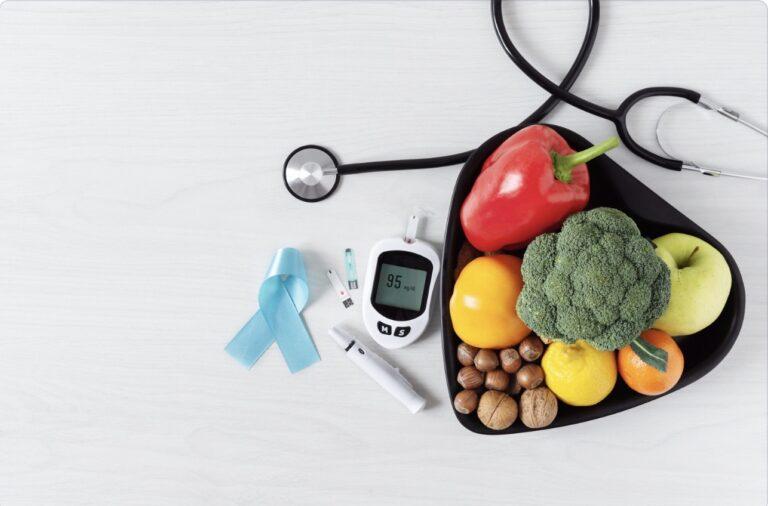
Prediabetes is a condition characterized by higher than normal blood glucose levels, but not high enough to be diagnosed as type 2 diabetes. It is estimated that over 98 million American adults, or more than 1 in 3, have prediabetes (other names used for prediabetes are impaired fasting glucose, glucose tolerance, impaired glucose tolerance and borderline diabetes) with the majority being unaware of their condition.
The American Diabetes Association (ADA) recommends that diabetes screening for most adults begin at age 35. Prediabetes increases the risk of developing type 2 diabetes, as well as other serious health problems such as heart disease and stroke. However, the progression from prediabetes to type 2 diabetes is not inevitable, and lifestyle changes can help prevent or delay the onset of the disease.
Understanding prediabetes
To comprehend prediabetes, it is essential to understand the role of insulin in the body. When we consume food, our body converts it into sugars, which are then absorbed into the bloodstream. Insulin, a hormone produced by the pancreas, allows the cells to take in the sugar and convert it into energy. In the case of prediabetes, the cells become resistant to insulin or do not produce enough insulin. They do not respond properly, resulting in elevated blood sugar levels. The pancreas compensates by producing more insulin, but over time, it may become unable to keep up with the demand, leading to elevated blood sugar levels and the development of prediabetes.
Risk factors for prediabetes
While anyone can develop prediabetes, certain factors increase the likelihood of its occurrence. Excess weight is a significant risk factor, especially when combined with other factors such as a family history of type 2 diabetes, being over the age of 45, ethnicity (Asian-American, African-American, Latino, Hispanic, Native American, Pacific Islander are higher risk groups), smoking, and certain medications. Additionally, medical conditions like obstructive sleep apnea, fatty liver disease, polycystic ovary syndrome (PCOS), Cushing’s syndrome, and lipodystrophy syndromes are associated with an increased risk of insulin resistance and prediabetes.
Symptoms and diagnosis
Prediabetes typically does not present with noticeable symptoms, which is why it often goes undetected until more serious health problems arise. However, certain signs may indicate the presence of prediabetes, such as a waistline over 40 inches in men and over 35 inches in women, increased urination, skin tags or patches of dark velvety skin, high blood pressure, elevated fasting glucose levels, and abnormal lipid profiles. Diagnosis is usually made through blood tests, including glycated hemoglobin tests (A1C tests), fasting blood sugar tests, and oral glucose tolerance tests.
Treatment and prevention
The good news is a person may be able to reverse prediabetes and prevent progression to type 2 diabetes through lifestyle modifications and, in some cases, medication. To prevent prediabetes the primary focus of treatment is on adopting healthy habits, including healthy eating, regular physical activity, weight management, smoking cessation, and stress reduction. Losing as little as 5-7% of body weight can significantly reduce the risk of type 2 diabetes. The National Diabetes Prevention Program, offered by the CDC (Centers for Disease Control and Prevention), provides guidance, support, and resources to individuals at risk of developing type 2 diabetes.
Managing prediabetes in children
Prediabetes is not limited to adults; it is increasingly prevalent among children and adolescents, primarily due to the rise in childhood obesity. Children who are overweight or obese and have additional risk factors, such as a family history of type 2 diabetes, low birth weight, or gestational diabetes exposure, should be tested for prediabetes. Management in children involves lifestyle changes similar to those recommended for adults, including weight loss, dietary modifications, increased physical activity, and regular monitoring of blood sugar levels.
Complications of prediabetes
Although prediabetes is not a full-blown chronic condition like type 2 diabetes, it is associated with long-term damage to various organs and systems in the body. Uncontrolled prediabetes increases the risk of developing cardiovascular diseases, such as high blood pressure, high cholesterol, and heart disease. It can also lead to kidney disease, nerve damage, fatty liver disease, eye damage, and an increased likelihood of experiencing unrecognized heart attacks. Therefore, early intervention and lifestyle changes are crucial to prevent these complications.
Alternative treatments and therapies
While there is no definitive evidence supporting alternative treatments for prediabetes, some therapies have shown potential in managing blood sugar levels and reducing the risk of developing type 2 diabetes. These include the consumption of cassia cinnamon, flaxseed, ginseng, oats, soy, and xanthan gum. However, it is important to consult with a healthcare provider before starting any alternative therapies, as they may interact with prescribed medications or other health conditions.
Seeking medical care and prevention
Regular check-ups and screenings are essential for individuals at risk of prediabetes or type 2 diabetes. If you have concerns about diabetes or notice any symptoms associated with the disease, it is advisable to consult a healthcare provider. They can assess your risk factors, perform the necessary tests, and provide guidance on prevention and management strategies. By making healthy lifestyle choices, maintaining a healthy weight, and actively managing risk factors, prediabetes can be effectively controlled or even reversed.
Conclusion
Prediabetes is a serious health condition that requires attention and intervention to prevent the progression of type 2 diabetes and associated complications. Understanding the risk factors, symptoms, diagnosis, and treatment options is crucial for individuals with prediabetes and healthcare providers alike. By adopting a proactive approach to lifestyle changes, such as maintaining a healthy weight, meal planning, engaging in regular physical activity, and making dietary modifications, it is possible to prevent or delay the onset of type 2 diabetes. With early detection and appropriate management, the impact of prediabetes can be minimized, leading to better overall health and well-being.
Additional Information:
- It is important to note that prediabetes is a reversible condition, and with proper lifestyle changes, the risk of developing type 2 diabetes can be significantly reduced
- Regular monitoring of blood sugar levels and adherence to prediabetes treatment plans are essential for individuals to prevent the progression to type 2 diabetes
- The National Diabetes Prevention Program, offered by the CDC, provides structured lifestyle change programs that have been shown to be effective in reducing the risk of type 2 diabetes
- It is crucial for individuals with prediabetes to be proactive in managing their condition and seeking appropriate medical care to prevent further complications
- Prediabetes can be a wake-up call to make positive changes in one’s lifestyle and prioritize health and well-being
Sources
- Prediabetes – Diabetes UK |-Reduce risk type 2 diabetes
- Prediabetes – Diagnosis and treatment – Mayo Clinic
- Prediabetes – Your Chance to Prevent Type 2 Diabetes – CDC
- Prediabetes – Symptoms and causes – Mayo Clinic
Medical Disclaimer
NowPatient has taken all reasonable steps to ensure that all material is factually accurate, complete, and current. However, the knowledge and experience of a qualified healthcare professional should always be sought after instead of using the information on this page. Before taking any drug, you should always speak to your doctor or another qualified healthcare provider.
The information provided here about medications is subject to change and is not meant to include all uses, precautions, warnings, directions, drug interactions, allergic reactions, or negative effects. The absence of warnings or other information for a particular medication does not imply that the medication or medication combination is appropriate for all patients or for all possible purposes.









